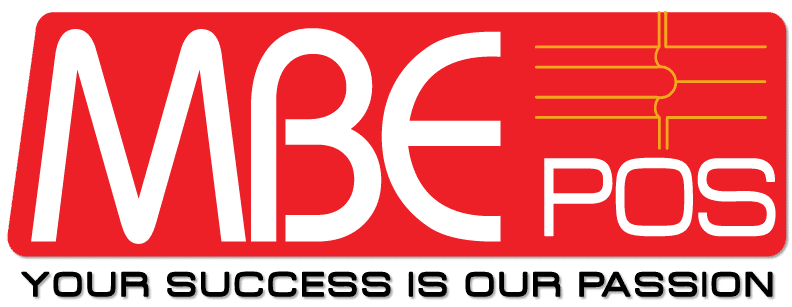Are you a Canadian business owner in search of the perfect POS system? Whether you own a small or large business, choosing the right system is crucial for your operations and customer experience.
A POS system in Canada with the right features and capabilities is critical to any business. Though It can help you streamline processes, manage inventory, and keep customers happy.
However, this blog discusses the factors to consider when selecting a POS system that fits your needs and budget. Let’s dive in and explore what you need to know about choosing the right POS system for your business and find out the pos system meaning in the true sense.
Business Needs
When selecting a POS system, it’s important to consider the specific needs of your business. Here are some key factors to keep in mind:
Size of your business
The size of your business can impact the type of POS system you choose. A pos system for small businesses may have different features than that for large enterprises with multiple locations.
Industry-specific needs
Certain industries may require specific features in a POS system. For example, a restaurant may need the ability to split checks and customize menu items. In comparison, a retail store may require inventory management tools.
Payment processing
Different POS systems may offer various payment processing options, i.e. credit cards, debit cards, and mobile payments.
Reporting and analytics
Many POS systems offer reporting and analytics tools that can help you track sales, inventory, and other key metrics. Moreover, depending on your business needs, these features may be essential.
Customer support
Choosing a POS system in Canada with reliable customer support can help promptly address any issues or questions.
Understanding your business needs and considering each POS system’s specific features and capabilities. Also, you can choose a system that meets your business’s unique needs and helps you operate more efficiently and effectively.
Budget
When choosing a POS system, cost is an important factor to consider. Here are some key things to keep in mind when evaluating the cost of different POS systems:
Upfront costs
Some POS systems require an upfront investment, including hardware such as a cash register, barcode scanner, and receipt printer. Be sure to factor these costs into your budget.
Software fees
Many POS systems in Canada charge a monthly or annual fee for access to their software. These fees can vary widely depending on the features and capabilities of the system.
Payment processing fees
Besides software fees, some POS systems may also charge fees for payment processing, such as a percentage of each transaction.
Support and maintenance costs
Some POS systems may charge additional fees for customer support or software updates. Be sure to factor these costs into your budget as well.
Considering these costs, you can determine how much you will spend on a POS system. Also, consider which systems are within your budget.
Remember that the cheapest option may sometimes be the best. It may offer only some features and capabilities you need to run your business effectively.
Ease of Use
When selecting a POS system, choosing a system that is easy for you and your employees is important. Here are some key things to keep in mind when evaluating the ease of use of different POS systems:
User interface
The user interface of a POS system should be intuitive and easy to navigate, with clear buttons and menus.
Training and support
Ensure your system has adequate training and support resources, helping you and your employees learn how to use it effectively.
Integration with other systems
If you already use other software or systems in your business, choose a POS system that integrates seamlessly. Also, it helps to reduce the learning curve.
Customization
Look for a POS system that allows you to customize the interface to suit your specific needs and preferences.
Choosing a POS system that is easy to use can reduce the likelihood of errors. Furthermore, you can ensure that your employees use the system effectively, helping you streamline your operations and improve efficiency.
Compatibility
When selecting a POS system, choosing one compatible with your hardware, software, and other systems is important. Here are some key things to keep in mind when evaluating compatibility:
Hardware compatibility
Ensure your POS system is compatible with your existing hardware, such as cash registers, barcode scanners, and receipt printers.
Software compatibility
If you’re using other software or systems in your business, ensure your POS system is compa them to avoid compatibility issues.
Operating system compatibility
Ensure that your POS system is compatible with your operating system, whether it’s Windows, Mac, or another platform.
By ensuring that your POS system is compatible with your existing hardware, software, and systems, you can avoid compatibility issues that can slow down your operations and lead to frustration for you and your employees.
Customer Support
Choosing a reliable customer support provider is important when selecting a POS system. Here are some key things to keep in mind when evaluating customer support:
Availability
Make sure that customer support is available when needed, whether during business hours or 24/7.
Response time
Look for a provider offering quick response times to resolve issues.
Support channels
Choose a provider that offers support through multiple channels, such as phone, email, and live chat.
By choosing a POS system provider that offers reliable customer support, you can ensure that any issues or questions can be resolved quickly and efficiently, minimizing downtime and disruptions to your operations.
FAQs
What Is A POS System?
A POS or point of sale system is a software and hardware solution that enables businesses to process sales transactions, manage inventory, and track customer data.
How does POS System Works?
A POS system works by scanning or inputting product information, calculating the total cost of the sale, processing payment, and updating inventory levels.


